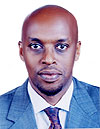On the 10th of November 2006, the Mucyo commission completed two-weeks of public hearings where tens of witnesses gave detailed accounts of what French civilian and military personnel did before, during and after the genocide including rapes, assassinations, training of Interahamwe, participation to torture etc… A week later, on November 17th Judge Brugière issued his report on the downing of Habyrimana’s plane, blaming president Paul Kagame and nine of his closest military collaborators at the time and inferring that they were ultimately responsible of the issuing genocide.


On the 10th of November 2006, the Mucyo commission completed two-weeks of public hearings where tens of witnesses gave detailed accounts of what French civilian and military personnel did before, during and after the genocide including rapes, assassinations, training of Interahamwe, participation to torture etc… A week later, on November 17th Judge Brugière issued his report on the downing of Habyrimana’s plane, blaming president Paul Kagame and nine of his closest military collaborators at the time and inferring that they were ultimately responsible of the issuing genocide.
Thanks to Wikileaks we learned that a couple of weeks later, in January 2007, Judge Brugière briefed American diplomats in Paris exposing the political nature of this action and telling them that before issuing his indictments against the Rwandan senior military officers he consulted high ranking French officials including president Jacques Chirac. His charge rested mainly on one Rwanda Patriotic Front (RPF) Army deserter, Abdul Ruzibiza, who later retracted himself while other key witnesses did the same or denounced the manipulation of their statement by the judge.
Brugière ’s report wouldn’t have sustained the slightest honest scrutiny but regardless many people and institutions chose to give it credit. This report turned upside down responsibilities of the saviors and the killers in one the gravest human tragedies of the 20th century that occurred in broad daylight with overwhelming evidence on who the culprits were. The irony of the situation was that all of this was orchestrated by a democratic western power itself deeply involved in the genocide. Not amused, Rwanda measured up the seriousness of the situation by severing ties with France.
European countries, some of which, like Belgium, were fully aware of the machination, which had investigated the shooting of the plane and incriminated the Hutu extremists, were nevertheless ready to apply the European indictments established by Judge Brugière . Afterwards, a growing number of journalists and scholars started adopting "the alternative narrative of the Rwanda genocide” putting moral responsibility for the genocide on the RPF. The International Criminal Tribunal for Rwanda became unduly influenced by Brugière ’s alternative narrative leading its court of appeal to invocate it while exonerating the master minder of the genocide, Col. Theoneste Bagosora, for conspiracy to commit genocide in spite of all the evidence provided by the prosecution.
This extraordinary but at the same time very crude machination was upheld by the international law and by institutions and people operating in a field requiring the highest standard of principles. Why this? For some, a "small” African country cannot be right against an old democratic western nation. Indeed, the higher moral ground contest that steamed from the circumstances in which RPF stopped the genocide in spite of the abandonment of Rwanda by the international community and the way it jealously kept ownership of its reconstruction process are sources of enduring hostility in some corners of the international community.
The same happened with the UN Mapping report displaying an almost obsession for turning the blame of genocide on the RPF, this time in the Democratic Republic of Congo. Here again, lies and manipulation were used and defended by human rights organizations and activists who easily gained over journalists who helped them make their message front page news. Once again, the government of Rwanda had to fight tooth and nail against the most horrendous of accusations. Revisionism is the last stage of genocide but in the case of Rwanda it is fueled even more by prejudice and international inequality and the clear standpoint against them by this country Rwandans and their friends should better get used to it, it is not going away any time soon.
The Author is an advisor in the Office of the President of Rwanda.
Email: jpkimonyo@gmail.com
Blog: africainprogress.worldpress.com


